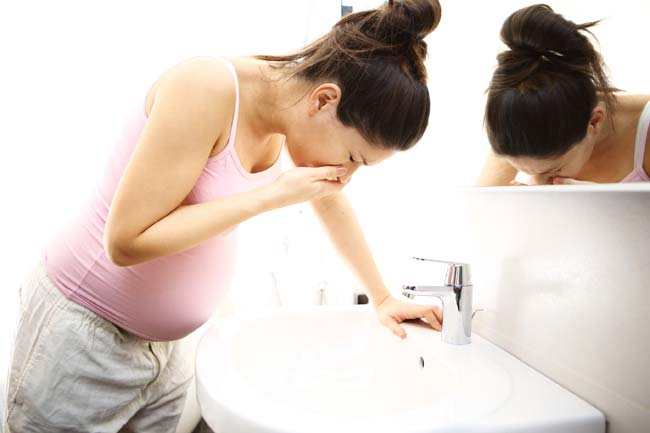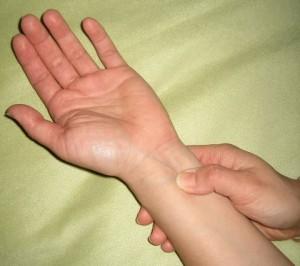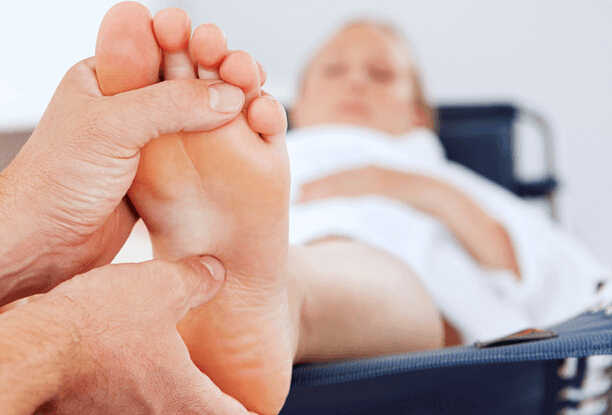Morning sickness is usually among the very first signs of pregnancy. The term "morning sickness" does not mean you experience the discomfort in the morning only, some women even experience vomiting, nausea, and other symptoms throughout the day. Some experience it constantly, while it comes and goes for the others. There are also those who only experience it at night. For some, morning sickness is like the worst stomach flu they have ever experienced, while others consider it to be more like a bad hangover.
Morning sickness is most commonly reported during the first trimester, although some woman may experience it throughout the whole process of pregnancy. For symptoms such as nausea, many home remedies are proven to be effective.
When Does Morning Sickness Peak and Why Do I Experience It?

For most women, the 6th week of pregnancy is the beginning of morning sickness, and it becomes less severe when you are 3-4 months pregnant. When is morning sickness the worst?The exact time is not the same for every pregnant woman, but you are more likely to get hit hard by nausea and vomiting in your 9th week of pregnancy.
Experts are of the view that you experience morning sickness during the early stages of pregnancy to help protect your baby in his/her most vulnerable phase of development. This explains symptoms experienced by many expectant moms such as sharpened sense of smell and constant need to take naps.
Morning Sickness: What Is It Like for Other Moms
This is my first pregnancy, so I really cannot give any advice on "peak" time. However, it was never too difficult for me, but I kept feeling nauseous until the 7th week. It was mild queasiness that did not hurt me much or stop me from doing anything.
It reached its "peak" when I was 10 weeks pregnant. While I do not throw up, I always experience nighttime sickness. It makes me feel rotten and I cannot eat anything. It has already started making my life difficult. I hope I get rid of it soon.
Mine was 10-15 weeks and it was quite tough for me to manage. I finally ended up being at the hospital and received a maxolon shot. It really worked, but I still feel nauseous and vomit when my blood sugar levels decline. Some foods also make me nauseous. I have stopped drinking plain water because it always makes me chuck.
How to Relieve Morning Sickness
Now that you know when does morning sickness peak,you may want to find out about how to relieve morning sickness symptoms.
Home Remedies
- Track your triggers and avoid them as much as possible. Your nose becomes extremely sensitive due to an increase in estrogen, so it is important to identify smells that set you off and avoid them. Keep a lemon, orange, sprig of mint or other fresh smelling herb with you all the time and sniff it when you notice any unpleasant scent.
- Identify foods that you can digest without feeling nauseous. Some women find it easy to digest carbohydrate snacks, such as pretzels, crackers, and dry cereal, while others work great with grilled cheese sandwich. Experiment a bit and stick with what does not irritate your stomach. Opt for something that is low in fat, high in protein, and easy to digest. Salty foods may work for some women, but avoid spicy, greasy, and fatty foods. Include foods rich in vitamin B6 in your diet – you can opt for bananas, avocado, and chicken.
- Eat smaller meals more often throughout the day to avoid dealing with nausea. Have a piece of dry toast or eat a few soda crackers when you wake up in the morning.
- Stay active. You may notice improvement in morning sickness symptoms by exercising in the morning. This improves endorphins levels that make you feel better. Breathing in fresh air may also help. Be sure to talk to your doctor before start doing any exercises.
- Keep your body well hydrated by drinking plenty of fluids. You can sip ginger ale or water if that does not make you feel nauseous.
- Try ginger tea. Ginger is a great remedy for nausea, and drinking ginger tea or simply munching on ginger snaps will help make your tummy feel better.
- Above all, you should take plenty of rest and keep yourself from feeling stressed out because it can make your pregnancy sickens.
Alternative Method
If symptoms like nausea and vomiting is bothering you a lot and keep you asking “when does morning sickness peak?” some of the following complementary therapies may be worth trying:

- Acupressure and acupuncture. Many pregnant women have benefit a lot from acupuncture, especially to deal with first-trimester nausea and dry retching. You can also benefit from acupressure that involves stimulating certain pressure points in your body to relieve nausea and vomiting. Using your hand to measure 3-finger-widths from the wrist, and when you experience nausea, apply pressure into this point on both wrists and repeat 20-30 times at the interval of a second.
- Aromatherapy may also help by relaxing your nerves. But keep in mind that the smell of some essential oils can make your nausea worse. You will have to experiment a bit before you find the right one. Peppermint, lime, spearmint, sweet orange, and mandarin essential oils are nice choices to consider.
- Try some herbal remedies. You can drink ginger tea, especially if you feel cold all the time and need hot drinks. Do not take ginger though if you are taking anti-coagulant drugs or similar medicines. Alternatively, you can try spearmint tea if you want cool drinks, feel irritable, and look hot and red-faced. Other herbal remedies include small amounts of chamomile tea and lemon balm tea.
- You can make use of a music app if movement, especially when in a car makes you feel nauseous. The app helps rebalance the sensitive hearing mechanism in your inner ear. Be sure to wear headphones instead of earphones for better effects.

- Try reflexology, which involves pressing certain pressure points on your feet to relieve morning sickness symptoms. While there is no strong evidence to support reflexology, it is still worth trying.
Medical Treatment
These natural remedies really work and keep you from asking "when does morning sickness peak?" For severe morning sickness that won’t go away, your healthcare provider may prescribe antihistamines, vitamin B6 supplements, and anti-nausea medications to help manage your symptoms better. In rare cases, severe symptoms may be diagnosed as hyperemesis gravidarum, which require hospitalization and treatment with medications and IV fluids.
